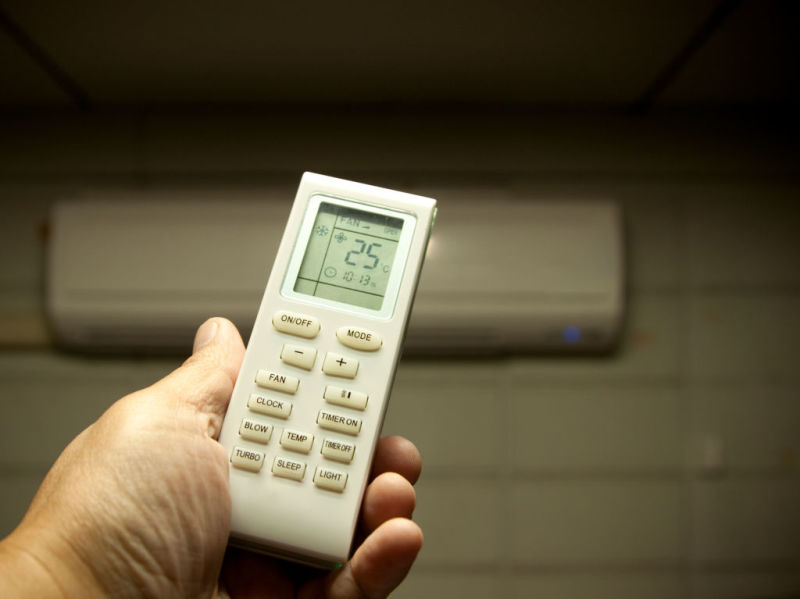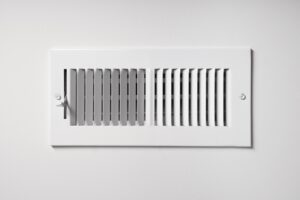Everyday work and stress can ruin your bedtime routine. Not to mention, it can interrupt your sleep cycle. If you have checked everything for a comfortable sleep, including soothing music and a darker room, still not getting enough sleep, then something is missing.
You should realise that the temperature in your bedroom might keep you awake all night. It might sound surprising, but the right temperature during bedtime can improve your sleep quality.
Let’s find out what the temperature should be during your sleep and more information about it.
What Should be the Appropriate Temperature for Sleep?
Before you know the ideal temperature for your bedroom, you should remember that every person is different. Therefore, the comfortable temperature range might vary by a few degrees from one individual to another.
However, the best temperature for a bedroom is nearly 18.3-degree Celsius or 65 degrees Fahrenheit. Doctors recommend that you keep the thermostat between 60 and 67 degrees Fahrenheit. In Celsius, the range should be within 15.6 degrees Celsius and 19.4 degrees Celsius. Why is this range the perfect temperature for sleep?
Well, our body experiences a drop in temperature at the end of the day. The temperature decreases in your body core a bit more when you sleep. Hence, setting the temperature within that specified range helps regulate your body’s temperature. Additionally, it instructs your body to get ready for a comfortable sleep.
Is the Above-Specified Temperature Range Safe for Infants?
Babies’ bodies are still developing and can be more sensitive to temperature changes. Hence, a warmer environment is better for your infants’ sleeping regime. You should consider one or two degrees hotter than your comfortable temperature as an adult.
You can set the thermostat up to 69 degrees Fahrenheit or 20.5-degree Celsius when in your infants’ room. However, considering a higher temperature than this might be harmful to your baby. Too warm bedrooms can invoke chances of SIDS or sudden infant death syndrome.
Additionally, you can improve your kids’ sleeping habits by using suitable sleepwear. Don’t cover them up with heavy blankets. If you feel too concerned about your infant’s temperature, touch your baby’s back of the neck or stomach during the night. If it feels slightly colder or warmer than expected, you can regulate the thermostat accordingly.
Infants can achieve temperature maturation approximately by 11 weeks of age. The core temperature of the infant’s body can reach up to 36.4℃ or 97.5℉ 4 hours after falling asleep. This is quite similar to our body temperature.
How can Temperature and Sleep Cycle be Connected?
The circadian rhythm regulates our sleep cycle and body temperature for 24 hours of a day. Our brain decides on the circadian rhythm depending on the sun’s light-and-dark cycle.
The suprachiasmatic nucleus in the hypothalamus controls our body clock and is influenced by our surroundings, physical factors, light exposure, exercise quotient, and temperature.
You already know that our core body temperature is almost 37-degree Celsius or 98.6 degrees Fahrenheit. However, this is not the steady temperature throughout the 24 hours.
Instead, our body can experience a fluctuation of 2 degrees Fahrenheit at night. The body core sheds the temperature to maintain the sleep hormone. Moreover, the drop in the temperature takes place nearly 2 hours before you fall asleep.
In addition to this, your body temperature proceeds to fall to a low point. On the other hand, your body will start warming up gradually in the morning and as the day progresses. How can your body lose temperature?
The body sends the heat away from its core through vasodilation. This process informs the brain to increase blood flow to the remotest corners of the body. You might feel like your hands and feet are heating up, and you can misinterpret it as a sudden increase in overall body temperature or fever.
However, few people who suffer from sleep disruptions, such as insomnia, etc., might have cold feet chronically. Therefore, setting the right temperature during sleep can help with insomnia.
What if Your Bedroom is too Cool or Hot?
A cold bedroom indicates that its temperature is lower than 60 degrees Fahrenheit. Sleeping too cold has its share of disadvantages, too. The body tries to heat us when the surrounding temperature is too low. This can constrain blood vessels, and you might experience difficulty breathing. Additionally, it can pressurise our overall cardiovascular system.
Similarly, sleeping too warm can be dangerous for your overall health. You might crave cosy and warm comfort under your blanket while in bed, but turning the heat to more than 70-degree Fahrenheit is not recommended.
You might feel restless and twist and turn during sleep when your bedroom is too hot. Consequently, you might find it troublesome to fall asleep. Moreover, your body will become fatigued due to the uncomfortable temperature range. Your body might sweat and shiver because of unbearable heat, affecting your body temperature regulation.
Exposure to such warm temperatures at night will disturb your sleeping habit. Sleep is mandatory for resting and recovering and building up your body for overall productivity. Improper sleeping will affect the learning ability, memory, immune system, and more.
Tips to Maintain Your Bedroom’s Ideal Temperature for a Better Sleep Routine
Setting your thermostat to the desired temperature isn’t the only solution to keep your bedroom cool and comfortable. There are tried and tested methods that can help you to keep your bedroom cool as you deserve for sleeping.
Here’s what you need to follow:
- Use the appropriate window treatment, such as blinds, to insulate your home. This will help in decreasing the heat build-up, too.
- Additionally, you can move your bedroom downstairs during summer. This is applicable to those who live in villas or multi-storied buildings.
- Turning on the fan along with the air conditioner is a smart choice. Turn the fan off if it’s too cold, you can keep a bottle of hot water handy during winter.
- If you like to sleep in a room with a high temperature, then you should ensure that your bedroom gets proper ventilation. You can keep your bedroom windows open at night for improved ventilation.
- To keep your bedroom cool, you must take care of its humidity. You can invest in a humidifier or dehumidifier according to your bedroom’s humidity level.
- Use approved mattresses, pillows, pillowcases, bedsheets, and comfy sleepwear. They help in better temperature regulation.
- You can also take a warm bath before you go to bed. It relieves your body from stress and brings a cooling effect naturally.
If you face sleep issues, you can check all the above-mentioned tips apart from setting the ideal temperature. Additionally, you can consult a doctor to bring changes in your diet, lifestyle, and more to achieve a more rhythmic sleep cycle.
Does the Temperature for Sleep Differ with Age?
With ageing, the body experiences ups and downs in hormone levels. The sleep cycle can be affected by improper hormone discharges, be it cortisol or melatonin. Similarly, you might have to adjust your ideal sleep temperature as you age.
However, if you can’t change your sleep temperature drastically, consult your physician to know more about sleep temperature and everything in between.




